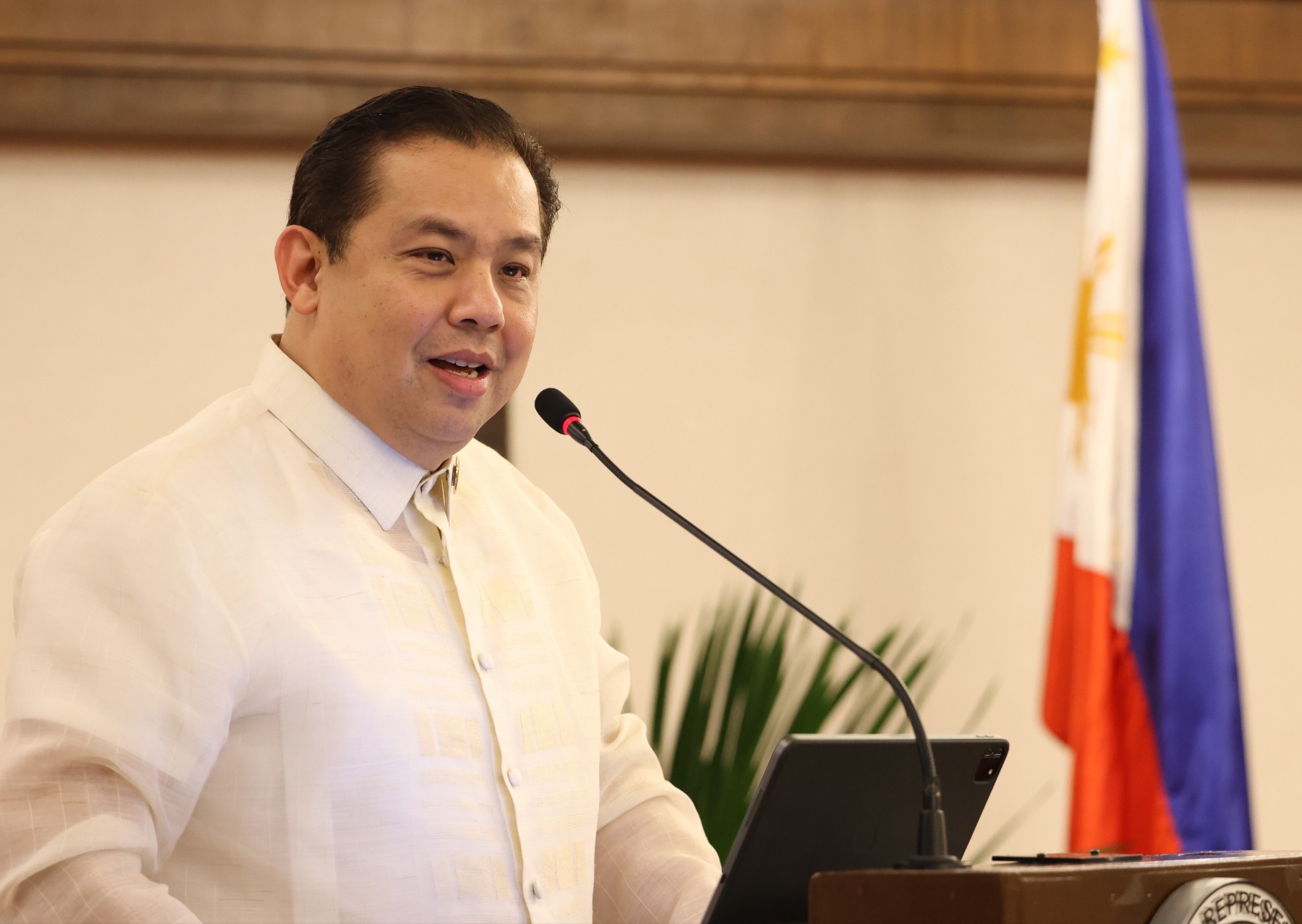Nowhere to go but up for Philippine microchip, digital industries after trilateral summit--Romualdez
At A Glance
- House Speaker Martin Romualdez has expressed optimism with the employment and business prospects in the Philippines on the heels of the United States (US) and Japan's declaration of support for the country's microchip industry and digital initiatives.
 House Speaker Martin Romualdez (Speaker’s office)
House Speaker Martin Romualdez (Speaker’s office)
House Speaker Martin Romualdez has expressed optimism with the employment and business prospects in the Philippines on the heels of the United States (US) and Japan’s declaration of support for the country’s microchip industry and digital initiatives.
This, as Romualdez commended President Marcos for securing the two nations' commitment to expand these areas as it would attract more investments and in turn generate more jobs.
He also expects the move to spur online and information technology (IT)-related businesses for Filipinos.
“These developments hold immense promise for the Filipino people, as they are poised to significantly impact investments, job creation, business expansion—particularly online and IT-related enterprises--- and overall livelihood,” said Romualdez, who accompanied Marcos in the historic trilateral summit of the US, Japan, and Philippines in Washington, DC.
Romualdez was referring to the Joint Vision Statement issued by Marcos, US President Joe Biden, and Japanese Prime Minister Fumio Kishida, wherein the three leaders said they “intend to pursue a new semiconductor workforce development initiative".
He said that under this initiative, “Students from the Philippines will receive world-class training at leading American and Japanese universities, to help secure our nations’ semiconductor supply chains.”
The Joint Vision Statement cemented the announcement of the US last year for its collaboration with the Philippines to explore opportunities to grow and diversify the global semiconductor ecosystem under the International Technology Security and Innovation (ITSI) Fund, created by the CHIPS Act of 2022.
Philippine Ambassador to the US Jose Manual Romualdez had estimated that around $100 billion in investment deals would be sealed in the next five to 10 years as a result of the historic trilateral meeting of the three leaders.
President Marcos said the US assistance through the ITSI Fund would, among others, enable the Philippines to achieve its goal of producing up to 128,000 semiconductor engineers and technicians by 2028 as demanded by the growing industry.
The Department of Trade and Industry (DTI) has reported plans for the Philippines to establish a lab-scale wafer fabrication plant for commercial and educational purposes. It will be used to train and upskill the workforce and enable the local industry to do prototyping and some tape-outs of semiconductor chip designs in the country.
In 2023, the biggest Philippine exports to the US were semiconductors and integrated circuits amounting to $3.1 billion or 23.3 percent of our country’s total exports to the US.
Romualdez said that apart from supporting the development of the local semiconductor industry, the collaboration with the US and Japan extends to technology sharing to enable a secure, reliable, and trusted information communications technology (ICT) ecosystem in the Philippines.
He noted that the US and Japan also intend to provide at least $8 million for Open Radio Access Network (O RAN) field trials and the Asia Open RAN Academy based in Manila.
O RAN is a non-proprietary version of the Radio Access Network (RAN) system that allows interoperation between cellular network equipment provided by different vendors.
The initiative aims to enable future commercial deployment and an open, interoperable, secure, reliable, and trusted information communications technology ecosystem in the Philippines. The country eyes to pilot Open RAN in its national broadband program and free Wi-Fi project.
Meanwhile, the Speaker also expressed optimism about more foreign investments coming into the country with President Marcos' separate engagements with US and Japanese business leaders on the sidelines of the trilateral meeting.
“These engagements underscore the Marcos administration's unwavering dedication to enhancing the country's connectivity infrastructure. By leveraging the expertise and resources of these groups, the Philippines aims to establish partnerships that will facilitate seamless integration into the global digital economy,” Romualdez said.